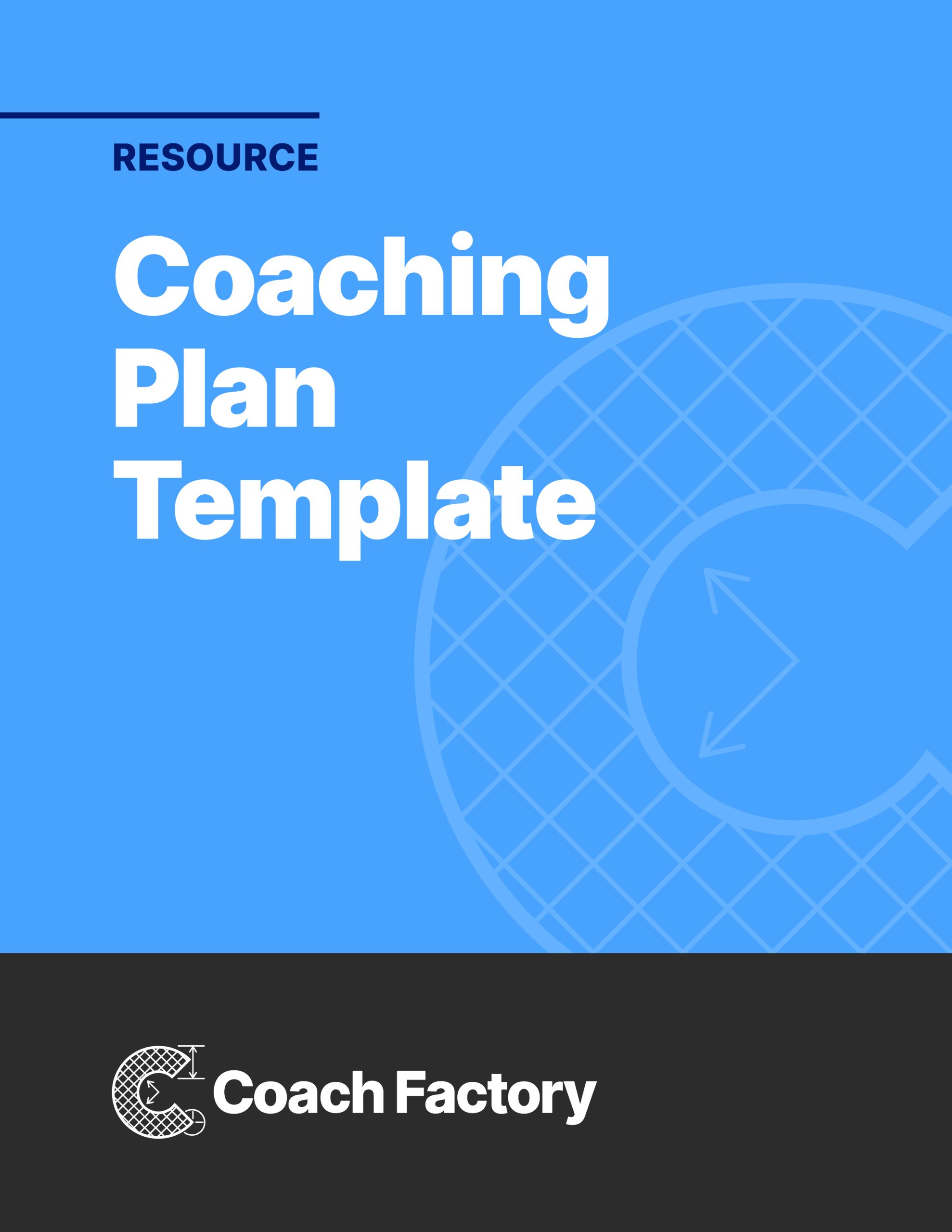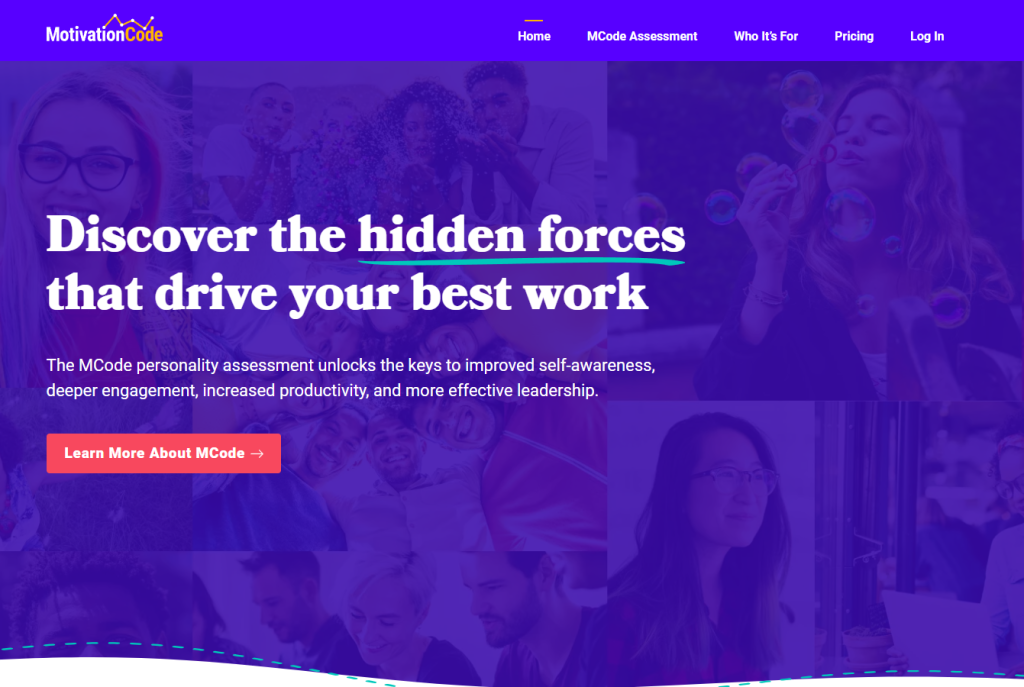

Great coaching requires time, dedication, and structure. Clients don’t experience a transformation by chance, instead, these periods of radical growth are the product of a coach’s deliberate design.
To get things started on the right foot and to continue through lasting change, a coach needs a cohesive coaching plan that maps out the client journey. Like a skilled instructor crafts a course of study to include lectures, valuable videos, insightful reading passages, and meaningful homework assignments, a coach also maps out the coaching plan with a variety of resources, all customized for the particular client.
A coaching plan includes four key components:
In this article, you’ll learn more about the steps for creating a successful coaching plan. You’ll see how to effectively use this coaching action plan to nudge your clients toward their ultimate success. Even better, this eight-step plan is available in a free PDF coaching plan template — with two samples to show you how to use the template in your own practice.

A coaching plan guides the overall trajectory of the coaching journey. It’s personalized for the client, incorporates feedback mechanisms for on-the-spot adjustments, and tracks key milestones towards the fulfillment of goals. Use this template to create powerful coaching action plans for your clients of any niche. It includes two samples: for wellness coaching and creativity coaching.
A good coaching plan goes far beyond this eight-step template. A solid coaching action plan is always created with the specific client in mind and is responsive to the client’s needs and unfolding environment. This means that the ideal coaching plan is not only unique and tailored to the client, but it also flexes as the coach-coachee relationship evolves and as new obstacles present themselves.
The onboarding and intake session is more than just a meet and greet. It’s a coach’s first opportunity to gain insights to build an action plan. In this session, you get to truly see your clients, acknowledge where they’re coming from, and grasp which areas of life they want to transform.
You have two key tools at this stage:
Both of these tools help your client, and you, to get clarity about their needs and biggest challenges.
The MCode assessment is ideal for the first stages of coaching. It attaches useful labels and categories to the inner drives that motivate your client. Being able to name and prioritize these inner values can provide a guiding north star for the path of your coaching.

Other types of assessments measure strengths, interests, emotional intelligence, etc. Those all have value, but a motivations assessment truly supersedes them all since motivation is the propelling force underlying all of the other components of our personhood.
Knowing your client’s motivations can inform so many aspects of the coaching plan:
Some clients come to coaching knowing exactly what their goals are. But many will need your outside perspective to help them voice their goals in a way that’s tangible, for example with the SMART framework:
Coaching goals are the objectives that your client longs to achieve. These are the impetus that drove your client to seek coaching and to hire your expertise. If you can help your client achieve these goals, you will win your client’s appreciation and raving testimonials. Ultimately, these goals are your reason for coaching.
During your coaching intake or onboarding session, the information you’ve gathered from your client and their assessments will be your reference point for setting objectives.
All coaching goals should align with your client’s values and core motivations. As you make the coaching development plan, be sure to limit your coachee to just 1-3 goals at a time. You can always generate new goals once the first set is achieved.
Wins inspire more wins! So to ensure your client is consistently experiencing progress throughout their journey, opt for a mix of short-term and long-term goals. Success in short-term goals offers an immediate sense of gratification that fuels the harder won long-term goals.
A rewarding coaching plan identifies the end goal and articulates the rationale behind the objective. But remember, life will throw curveballs, and the only way to combat these inconveniences is by recognizing and addressing potential obstacles, like behavioral patterns, belief systems, or external challenges.
In your coaching action plan, be proactive about the challenges your client faces by providing strategies, resilience frameworks, and adaptive models to address them ahead of time:

Measurable, unambiguous outcomes are the tangible indications that your client is advancing. They provide both motivation and a clear snapshot of their progress. Best coaching practice is to intertwine both quantitative and qualitative metrics, valuing emotional shifts just as much as number of steps walked or business targets reached.
Attaching these milestones to a tentative timeline is helpful for accountability. In the name of flexibility, some coaches are hesitant to define specific timeframes. But your timeline can always be adjusted during Step 6 below.
This is the longest part of the coaching plan template for a reason! Strategy is how you will help your client move from where they are to where they want to be. Within the strategy development process, your role as a coach extends into facilitating a space where clients feel seen, heard, and confidently engaged in their transformative journey. You provide the tools, frameworks, vocabulary, cheerleading, and troubleshooting that your client needs.
All of your sessions are based on what are you doing in between to achieve these goals, to meet these outcomes — “How can I support you? What are the tools that I can give you to continue to improve along those lines?” And coaching can be therapeutic, but it’s not therapy. It’s very structured and very goal oriented.
Rebecca Ward on the Coach Factory Podcast
This part of the coaching plan should be fully customized for your niche and your client. While every coach has their go-to diagrams (like the Wheel of Life) or handy acronyms (like the SOAR method), an experienced coach will realize that different people will respond better to different homework assignments or reading passages.
The coaching strategy should be easy to communicate, and your client should feel challenged yet confident about what’s required.
Part of the coaching action plan template is to evaluate progress, listen to feedback, and make adjustments where needed.
Be Open to Feedback
In coaching, feedback is a two-way street. You should be as open to your client’s needs and concerns as you expect them to be about yours. The feedback you give each other is how you keep your client motivated. If something in their plans needs tweaking, you must address it to avoid any unnecessary friction in achieving their goals.
Set up a main line of communication to keep the feedback flowing freely. Choose a messaging app or devote time during your sessions to garner critique.

Flexibility ensures the coaching plan remains relevant, adaptive, and genuinely supportive as the client navigates through their journey. Recognize that as the coaching process unfolds, new insights, challenges, and opportunities will emerge, requiring adjustments to the plan. A flexible plan accommodates growth and keeps the coaching methodology dynamic.
If a particular strategy or milestone consistently falls short, don’t hesitate to revisit and redefine it to align with learned experiences. It’s helpful to schedule client sessions dedicated to discussing any necessary changes and redirect the strategy.
You should also discourage overcommitment from your client. New clients sometimes are eager to take on as much as possible to accelerate their growth. Gently remind them that smaller steps lead to bigger achievements and there’s no need to rush their transformation.
The power of acknowledgment and celebration is extremely important. Every milestone, whether it be the realization of a goal or the manifestation of growth and learning, deserves to be celebrated. Recognizing and honoring these moments fuels motivation, affirms the client’s efforts and achievements, and fosters a positive and appreciative coaching dynamic. Knowing what motivates your client will help you celebrate in ways that deeply resonate with them.
Collaborate with your client to create celebratory moments for each milestone. Allow them to dictate how they would like to reward themselves. As they approach the end of their program, acknowledge their hard work and accomplishments.
If your client fails to meet a milestone, it is still important to promote positive thinking and offer support. Turn the failure into a teachable moment by allowing your client to reflect on what went wrong and how they can bounce back from it. This encourages them to practice resilience and aids in helping your client complete the plan.
Each step of the coaching plan, from the initial onboarding to the triumphant celebration of milestones, forms a chapter in the client’s journey. The magic of effective coaching resides in your deliberate, thoughtful approach to facilitating your client’s growth and achievement. This should manifest in each coaching plan you’ve created for a client.
Download this free coaching plan template (with two samples) today and put the eight-steps of a coaching action plan into use for your clients right now.
Even though transformation is the end goal, affirming the process is just as valuable as the outcome. A well-developed coaching plan shows your clients how each step works in harmony to get them where they need to be in their lives. The more effort and time you put into constructing solid plans, the better the results you’ll yield for your clients.

A coaching plan guides the overall trajectory of the coaching journey. It’s personalized for the client, incorporates feedback mechanisms for on-the-spot adjustments, and tracks key milestones towards the fulfillment of goals. Use this template to create powerful coaching action plans for your clients of any niche. It includes two samples: for wellness coaching and creativity coaching.
Written by The Coach Factory Team
We're a team of coaching enthusiasts who hire and work with coaches. Members of our team run businesses in the coaching industry or provide services that support coaches, and several of us are coaches ourselves.
Get instant access to our growing library of tools, training, insights, and resources you need to elevate your coaching game. completely free. No upsells. No gimmicks. Free forever!